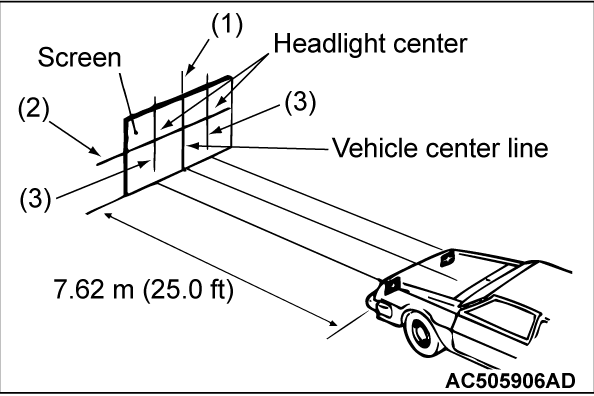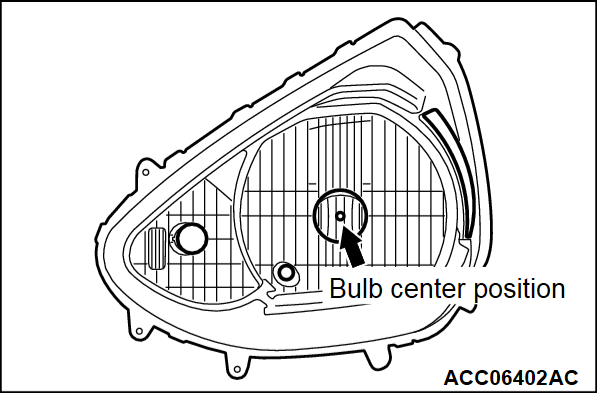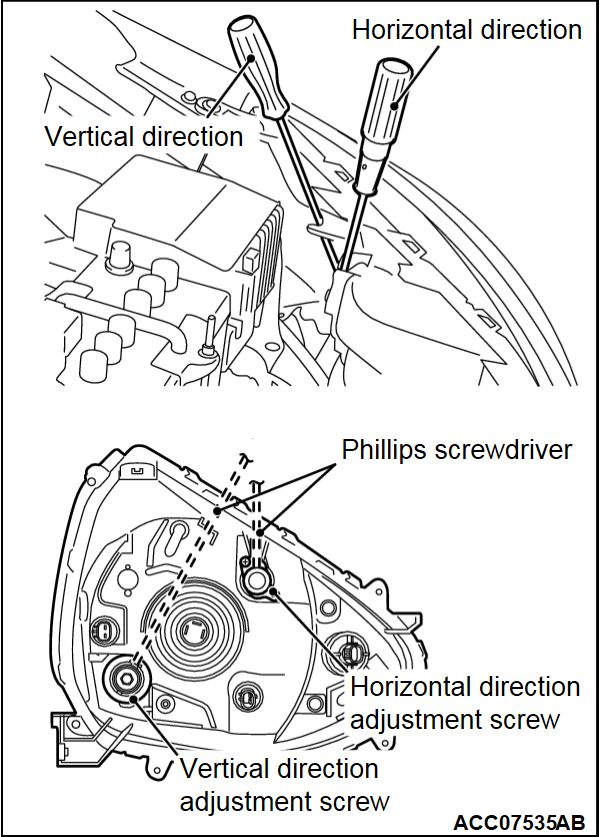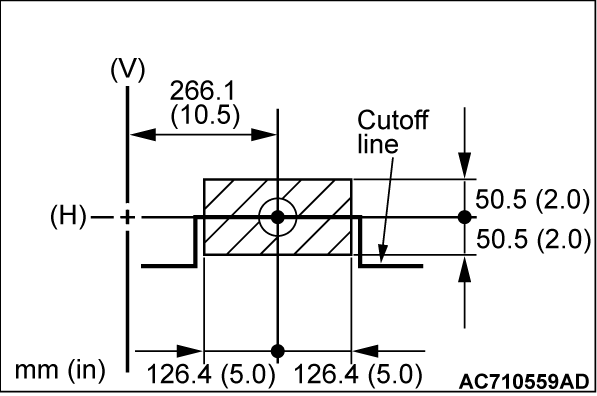HEADLIGHT AIMING
PRE-AIMING INSTRUCTIONS (LOW-BEAM)
1. Inspect for rusted or faulty headlight assemblies.
2. These conditions must be corrected before a satisfactory adjustment can be made.
3. Inspect tire inflation, and adjust if necessary.
4. If the fuel tank is not full, place a weight in the luggage compartment of the vehicle to simulate weight of a full tank [3 kg (6.6 pounds) per gallon].
5. There should be no other load in the vehicle other than driver or substituted weight of approximately 68 kg (150 pounds) placed in driver's position.
6. Thoroughly clean headlight lenses.
7. Place the vehicle on a level floor, perpendicular to a flat screen 7.62 m (25.0 ft) away from the bulb center-marks on the headlight lens.
8. Rock vehicle sideways to allow vehicle to assume its normal position.
9. Bounce the front suspension through three (3) oscillations by applying the body weight to hood or bumper.
10. Set the distance between the screen and the bulb center marks of the headlight as shown in the illustration.
11. Four lines of adhesive tape (or equivalent markings) are required on screen or wall:
(1) Position a vertical tape or mark so that it is aligned with the vehicle center line.
(2) Measure the distance from the center-marks on the headlight lens to the floor [ reference value: 832.8 mm (32.79 inches)]. Transfer the measurement to the screen. Horizontal tape or mark on the screen is for reference of vertical adjustment.
(3) Measure the distance from the center line of the vehicle to the center of each headlight. Transfer the measurement to the screen. Vertical tape or mark on the screen with reference to the center line of each headlight bulb.
HEADLIGHT ADJUSTMENT (LOW-BEAM)
1. The low-beam headlight will project on the screen upper edge of the beam (cut-off).
2. Turn the adjusting screw to achieve the specified low-beam cut-off location on the aiming screen.
Standard value:
- (Vertical direction) Horizontal line (H) ± 50.5 mm (± 2.0 inches) (± 0.38 degrees angle)
- (Horizontal direction): ± 126.4 mm (± 5.0 inches) (± 0.95 degrees angle) from the axis, which is 266.1 mm (10.5 inches) (2 degrees angle) rightward from the vertical line (V)
| caution | Do not cover a headlight for more than three minutes to prevent the plastic headlight lens deformation. |
| note | High-beam pattern should be correct when the low-beams are adjusted properly. |
![[Previous]](../../../buttons/fprev.png)
![[Next]](../../../buttons/fnext.png)



